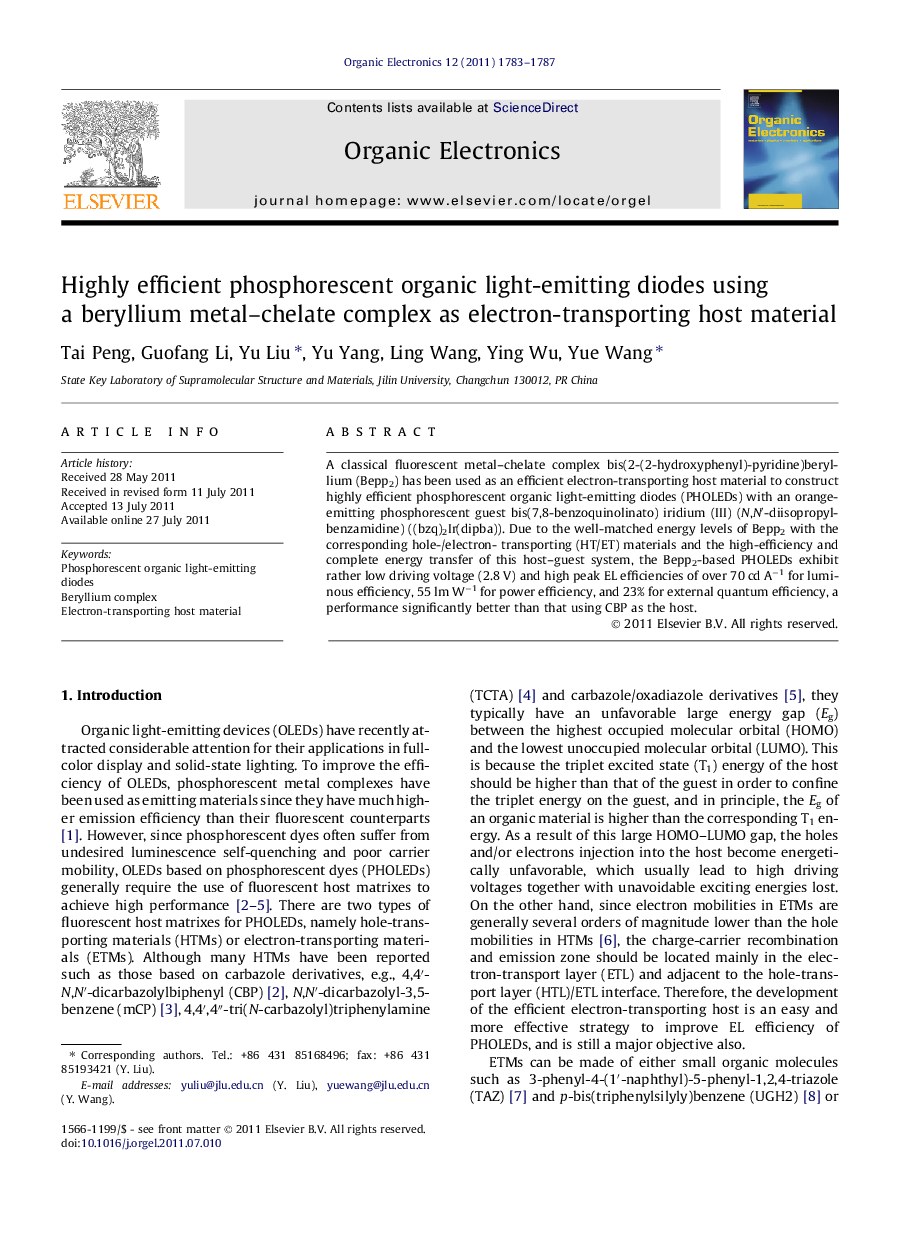| کد مقاله | کد نشریه | سال انتشار | مقاله انگلیسی | نسخه تمام متن |
|---|---|---|---|---|
| 1264722 | 972169 | 2011 | 5 صفحه PDF | دانلود رایگان |

A classical fluorescent metal–chelate complex bis(2-(2-hydroxyphenyl)-pyridine)beryllium (Bepp2) has been used as an efficient electron-transporting host material to construct highly efficient phosphorescent organic light-emitting diodes (PHOLEDs) with an orange-emitting phosphorescent guest bis(7,8-benzoquinolinato) iridium (III) (N,N′-diisopropyl-benzamidine) ((bzq)2Ir(dipba)). Due to the well-matched energy levels of Bepp2 with the corresponding hole-/electron- transporting (HT/ET) materials and the high-efficiency and complete energy transfer of this host–guest system, the Bepp2-based PHOLEDs exhibit rather low driving voltage (2.8 V) and high peak EL efficiencies of over 70 cd A−1 for luminous efficiency, 55 lm W−1 for power efficiency, and 23% for external quantum efficiency, a performance significantly better than that using CBP as the host.
A classical fluorescent metal–chelate complex Bepp2 has been used as an efficient electron-transporting host material, realizing highly efficient phosphorescent organic light-emitting diodes (PHOLEDs) based on an orange-emitting phosphorescent guest (bzq)2Ir(dipba). The Bepp2-based PHOLEDs (device I and II) exhibit rather low driving voltage (2.8 V) and high peak EL efficiency of more than 70 cd A−1 for luminous efficiency, 55 lm W−1 for power efficiency and 23% for external quantum efficiency, which show dramatically enhanced EL performance compared to that using CBP as the host (device III).Figure optionsDownload as PowerPoint slideHighlights
► A fluorescent complex was used as an electron-transporting host for PHOLEDs.
► Bepp2-based devices showed much higher EL performance than that using CBP.
► Bepp2 should be a promising material as a commonly used host in PHOLEDs.
Journal: Organic Electronics - Volume 12, Issue 11, November 2011, Pages 1783–1787